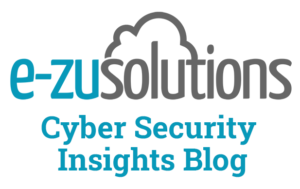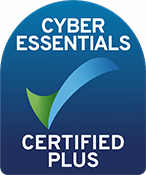The Ultimate Cyber Essentials Checklist: Everything You Need to Prepare and Pass
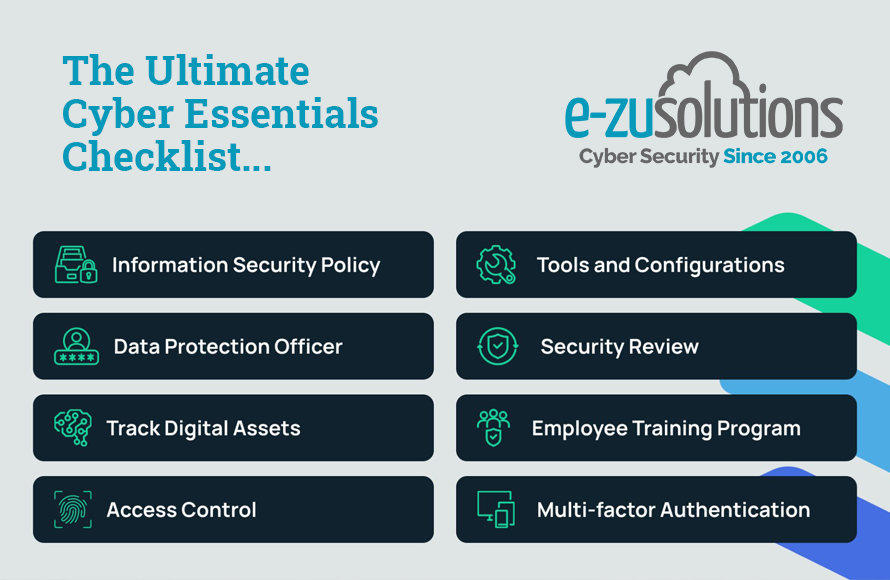
The Cyber Essentials certification scheme provides a strong and effective framework for defending against 80% of common cyber attacks. It was developed by the NCSC as a recommended level of cyber security for all UK organisations. Earning the Cyber Essentials certification is a great first step toward securing your organisation’s digital assets and personal information.
For those seeking opportunities in areas like the UK Government’s supply chain, this certification is a mandatory requirement.
As with any official certification, achieving Cyber Essentials requires adequate preparation, including time, budget allocation, and some technical know-how. We’ve created this checklist to help you prepare in advance and guide you through the process…
1. Establish an Information Security Policy
This first step is to start by creating an information security policy. This policy should outline the requirements and guidelines for cyber security within your organisation, aligning them with Cyber Essentials standards, such as:
- The requirements for the handling and processing of both first-party and third-party data.
- A clear password policy that includes length and complexity requirements.
- Rules outlining user behaviour, including access controls and internet usage.
Your security policy doesn’t need to be long or overly complex. It should clearly define cyber security rules in a way that all employees and external partners can easily understand and follow. Don’t forget to include guidance on secure remote work, covering the use of personal devices and VPNs. Be sure to outline procedures for handling and reporting security incidents both within and outside your organisation.
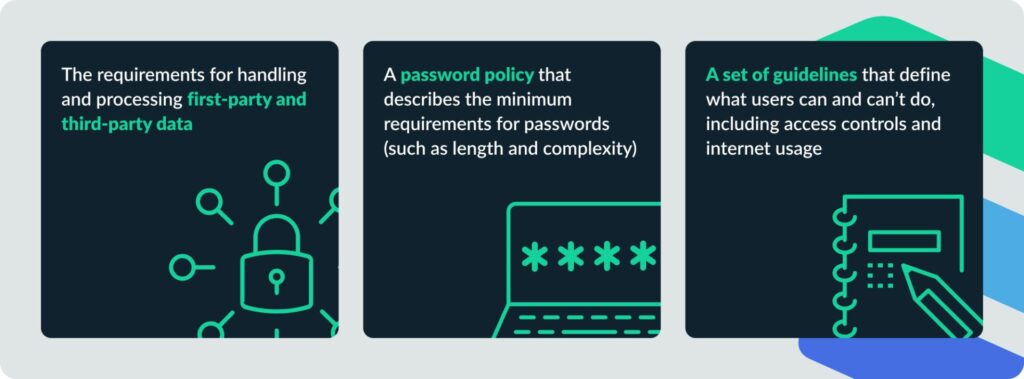
2. Appoint a Data Protection Officer (DPO)
Whilst not mandatory for all organisations, designating a Data Protection Officer (DPO) can be a key step in enforcing your information security policy.
In small and medium enterprises (SMEs), a DPO can oversee security efforts and act as the primary contact for any cyber security concerns.
As part of Cyber Essentials certification, businesses must complete a self-assessment questionnaire and submit supporting evidence. Assigning a DPO ensures there is a responsible individual to manage the certification process, conduct regular audits, and promote security training across the organisation.
3. Track Your Digital Assets
Maintaining an up-to-date inventory of your digital assets, including software and devices, is essential for effective cyber security.
Knowing the software versions and updates you have in place helps ensure everything is properly maintained and secure. Additionally, tracking your digital assets makes it easier to identify unauthorised devices, so you can remove or isolate them promptly. Set up a clear process for securely disposing of outdated equipment.
This practice helps you monitor vulnerabilities and maintain control over the devices in your network.
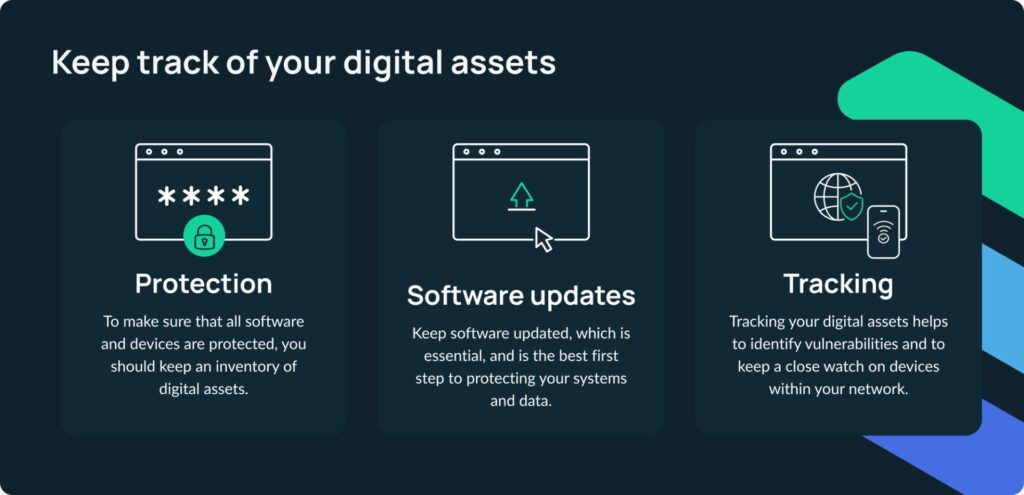
4. Implement Access Control Measures
Access control is key to ensuring only authorised individuals can access sensitive data. It’s also a crucial step for Cyber Essentials certification.
Utilise a Role-Based Access Control (RBAC) system to ensure users have access only to the information and systems they need for their specific role. Regularly review and adjust access permissions, especially when employees change roles or leave the organisation. Access control software can help by providing logs and alerts for any unauthorised access attempts.
5. Use the Right Tools and Configurations
Cyber Essentials requires that businesses deploy critical tools like firewalls and antivirus software to protect their networks.
A firewall serves as a barrier between your devices and external threats, particularly those from the internet. Meanwhile, antivirus software helps guard against malware and viruses that could compromise sensitive data.
Ensure that firewalls are configured to block access to harmful content. Proper use of firewalls and antivirus software will help defend your business against the most common cyber attacks.
6. Conduct Routine Security Reviews
Regularly reviewing the effectiveness of your cyber security measures is key to maintaining a secure environment.
Assign a team to oversee these reviews and use their findings to continuously improve security policies. Routine security reviews allow you to identify weaknesses and adjust your approach as your business grows.
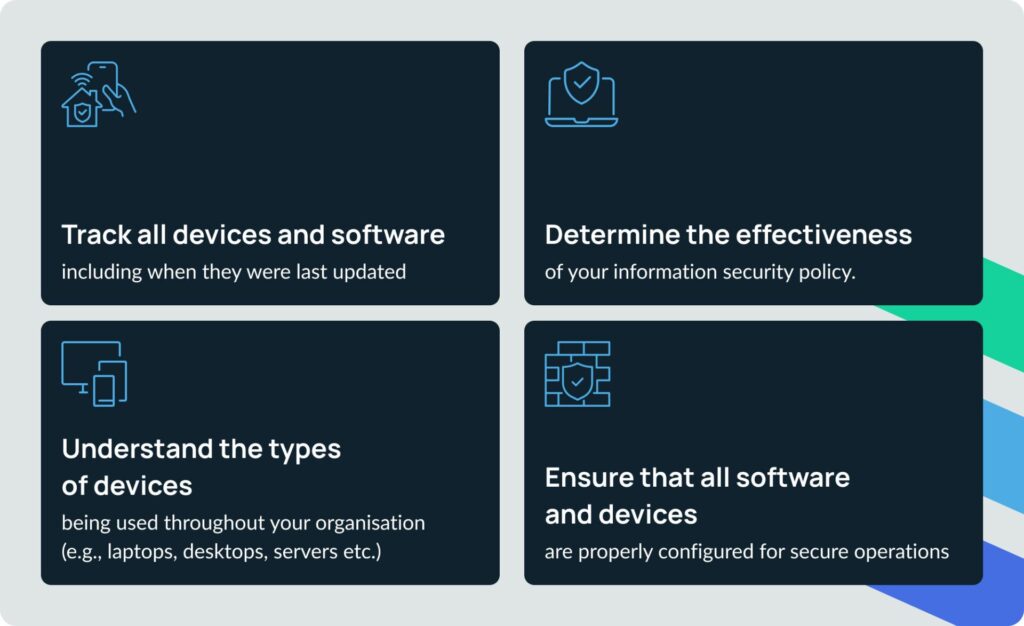
7. Provide Employee Training Programs
Interactive training that teaches employees how to identify phishing attempts is a critical component of cyber security. Regularly updated training materials ensure your team stays informed on the latest threats and best practices.
Assessments can highlight gaps in knowledge, allowing you to tailor training to address specific needs and provide meaningful feedback to employees.
8. Implement Multi-Factor Authentication (MFA)
Multi-Factor Authentication (MFA) adds an extra layer of security beyond traditional passwords by requiring multiple verification steps, such as a code sent to a mobile device.
Make sure MFA is in place for critical systems such as cloud services, email accounts, and administrative access—especially for employees working remotely. This helps protect against external threats.
Simplify Your Cyber Essentials Journey
We know from speaking to our customers that achieving Cyber Essentials certification can sometimes feel overwhelming. However, with just a small investment of time and effort, you can significantly reduce your risk. It’s true that following the checklist above will help you be well prepared to achieve Cyber Essentials compliance and certification, but we’re here to make things even easier for you…
For the simplest way to get certified, the CyberSmart platform from E-ZU Solutions Ltd is an automated solution that helps organisations eliminate the headaches and frustrations that can often arise whilst trying to achieve certification. Head to our Cybersmart Platform page to find out more and you can even see the dashboard for yourself with our Instant Interactive Demo. And please feel free to reach out to us if you have any questions about preparing for Cyber Essentials or protecting your business-critical data – Email: [email protected] or Call: 01260 715 021.


